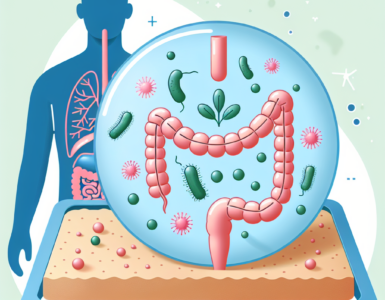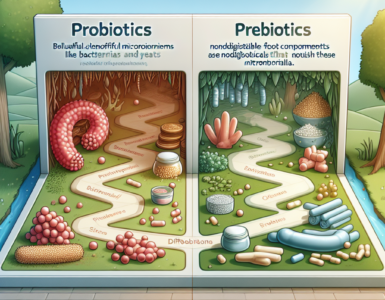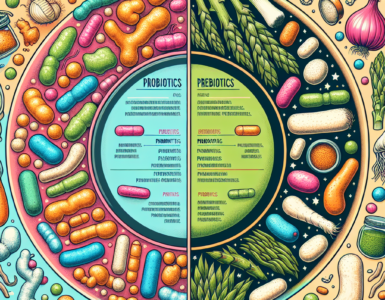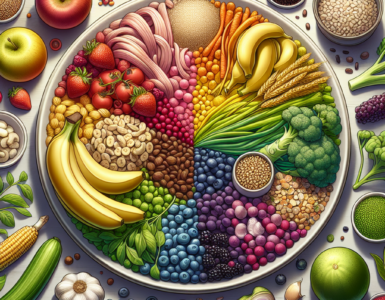The Link Between Diet and Stress
The connection between what one consumes and their emotional well-being is a subject of increasing interest and research. This section delves into how dietary choices can influence mood and stress levels.
Understanding How Food Affects Mood
The brain, a highly energy-dependent organ, is greatly influenced by one’s diet. The nutrients—or lack thereof—from food can affect neurotransmitter pathways, brain plasticity, and neuroendocrine function, all of which play a role in mood regulation.
Certain foods have been shown to have a profound impact on mood, either positively or negatively. For example, diets high in refined sugars are often linked to exacerbated symptoms of mood disorders, such as depression and anxiety. In contrast, foods rich in vitamins, minerals, and antioxidants can enhance brain function and promote a better mood.
The connection between mood and food can be visualized through the impact of specific nutrients on brain chemistry:
| Nutrient | Function | Mood Influence |
|---|---|---|
| Tryptophan | Precursor to serotonin | Enhances mood, promotes relaxation |
| Omega-3 Fatty Acids | Maintains brain cell membrane health | Reduces symptoms of depression |
| Magnesium | Involved in neurotransmission | Calms nervous system, manages stress |
| Zinc | Necessary for neurotransmitter synthesis | Balances mood, supports cognitive function |
The Stress Response and Nutrition
When the body perceives stress, it reacts by releasing hormones such as cortisol and adrenaline, which prepare the body for a “fight-or-flight” response. While these hormones are beneficial in acute situations, chronic stress can lead to elevated levels over time, negatively impacting health.
Nutrition can play a significant role in modulating the stress response. Certain foods can exacerbate the body’s reaction to stress, while others may help to dampen it. A diet that supports adrenal health and reduces inflammation can be pivotal in managing stress levels.
Stress-reducing nutrients work by various mechanisms to restore balance to the stress response system:
| Nutrient | Function | Stress Response Influence |
|---|---|---|
| Vitamin C | Supports adrenal gland function | Reduces cortisol levels, mitigates stress response |
| Magnesium | Regulates nervous system | Lowers physiological stress reactions |
| B Vitamins | Involved in energy production | Supports adrenal health, improves stress resilience |
| Omega-3 Fatty Acids | Anti-inflammatory | Reduces stress-induced inflammation |
By understanding the intricate relationship between diet and stress, individuals can make informed choices to include stress-reducing foods in their daily meals. These dietary adjustments may not only enhance mood but also contribute to overall mental health and well-being.
Identifying Stress-Reducing Nutrients
A balanced diet can play a crucial role in managing stress. Certain nutrients have been found to have a calming effect on the mind and body, helping to alleviate stress. Here, we explore four key nutrients that are known for their stress-reducing properties.
Magnesium: The Calming Mineral
Magnesium, often referred to as the calming mineral, plays a pivotal role in reducing stress. It aids in regulating the nervous system and can help to combat tension and irritability. Magnesium has also been found to assist in muscle relaxation and support a good night’s sleep.
| Food Source | Magnesium (mg) per serving |
|---|---|
| Spinach (cooked, 1 cup) | 157 |
| Pumpkin seeds (roasted, 1 oz) | 150 |
| Black beans (cooked, 1/2 cup) | 60 |
| Dark chocolate (70-85% cacao, 1 oz) | 65 |
Omega-3 Fatty Acids: Soothing Fats for the Brain
Omega-3 fatty acids are essential fats that are important for brain health and have been shown to help alleviate symptoms of stress and anxiety. They support brain function and can contribute to emotional balance.
| Food Source | Omega-3 Fatty Acids (g) per serving |
|---|---|
| Salmon (wild, 3 oz) | 1.5 |
| Flaxseeds (ground, 1 tbsp) | 1.6 |
| Chia seeds (1 oz) | 4.9 |
| Walnuts (1 oz) | 2.5 |
Vitamin C: The Stress-Busting Vitamin
Vitamin C is a powerful antioxidant known for its stress-busting abilities. It helps to lower cortisol levels and can improve the body’s ability to cope with stress. Additionally, vitamin C supports the immune system, which can be compromised by chronic stress.
| Food Source | Vitamin C (mg) per serving |
|---|---|
| Orange (medium) | 70 |
| Red bell pepper (1/2 cup, raw) | 95 |
| Kiwi (1 medium) | 71 |
| Strawberries (1/2 cup) | 49 |
Complex Carbohydrates: Steady Energy for Stress Relief
Complex carbohydrates help to steadily increase the level of serotonin in the brain, which has a natural calming effect. They provide a sustained source of energy, avoiding the spikes and crashes that can exacerbate stress.
| Food Source | Complex Carbohydrates (g) per serving |
|---|---|
| Quinoa (cooked, 1 cup) | 39 |
| Oatmeal (1 cup, cooked) | 27 |
| Brown rice (cooked, 1/2 cup) | 22 |
| Sweet potato (baked, 1 medium) | 24 |
Incorporating foods rich in these nutrients into your diet can contribute to stress reduction and promote mental wellbeing. It’s important to have a variety of stress-reducing foods to ensure that the body receives a balanced mix of these beneficial nutrients.
Foods that Help Alleviate Stress
In the pursuit of tranquility amidst a bustling lifestyle, certain foods have been identified as stress mitigators due to their nutrient composition. Integrating these foods into one’s diet can help temper stress and promote mental wellbeing.
Leafy Greens: More Than Just Salads
Leafy greens such as spinach, kale, and Swiss chard are rich in magnesium, a nutrient known for its calming properties. Magnesium plays a pivotal role in the body’s stress response and can help manage stress levels by relaxing muscles and regulating the nervous system.
| Leafy Green | Magnesium Content (mg per 100g) |
|---|---|
| Spinach | 79 |
| Kale | 33 |
| Swiss Chard | 81 |
In addition to magnesium, these vegetables are also high in folate, which contributes to the production of neurotransmitters like serotonin and dopamine, enhancing mood and stress resilience.
Fatty Fish: Ocean’s Gift for Stress Management
Fatty fish, such as salmon, mackerel, and sardines, are excellent sources of omega-3 fatty acids. These essential fats are crucial for brain health and have been shown to reduce stress levels and anxiety. They aid in regulating adrenaline and cortisol, hormones released during the body’s stress response.
| Fatty Fish | Omega-3 Fatty Acids (g per 100g) |
|---|---|
| Salmon | 2.3 |
| Mackerel | 2.6 |
| Sardines | 1.5 |
Regular consumption of fatty fish can lead to improved emotional balance and a more harmonious stress response.
Nuts and Seeds: Crunchy Comfort
Nuts and seeds, such as almonds, walnuts, and flaxseeds, are not only satisfying snacks but also potent stress-relievers. They are packed with magnesium, omega-3 fatty acids, and zinc – all of which contribute to a reduced stress response.
| Nuts/Seeds | Magnesium Content (mg per 100g) |
|---|---|
| Almonds | 270 |
| Walnuts | 158 |
| Flaxseeds | 392 |
Incorporating a variety of nuts and seeds into one’s diet can help in achieving a calm state of mind, while also providing a crunchy texture that many find comforting.
Whole Grains: Sustained Serenity
Whole grains like oats, quinoa, and brown rice are brimming with complex carbohydrates. These carbohydrates aid in the production of serotonin, a neurotransmitter that promotes a feeling of calm and well-being. Additionally, complex carbs contribute to a steady release of energy, preventing the spikes and crashes that can exacerbate stress.
| Whole Grain | Fiber Content (g per 100g) |
|---|---|
| Oats | 10.6 |
| Quinoa | 7 |
| Brown Rice | 1.8 |
Adopting a diet inclusive of whole grains can ensure sustained energy levels and a more balanced mood throughout the day.
By incorporating these stress-reducing foods into one’s dietary regimen, individuals can harness the natural power of nutrition to combat stress and foster relaxation. These foods not only nourish the body but also support a peaceful mind, offering a dietary foundation for those seeking solace in the face of life’s demands.
Incorporating Stress-Reducing Foods into Your Diet
Integrating stress-reducing foods into daily meals can be an effective strategy for managing stress levels. By planning and choosing the right foods, individuals can promote a sense of calm and well-being.
Meal Planning for Stress Reduction
Meal planning is a proactive approach to ensure a diet rich in stress-reducing nutrients. It involves selecting a variety of foods that provide a steady supply of magnesium, omega-3 fatty acids, vitamin C, and complex carbohydrates. Here are some tips for meal planning:
- Start by creating a weekly menu that incorporates a range of stress-reducing foods.
- Organize shopping lists to include ingredients like leafy greens, fatty fish, nuts, seeds, and whole grains.
- Prepare meals in advance to alleviate the stress of cooking during busy times.
- Focus on balanced meals that include a protein source, a complex carbohydrate, and plenty of vegetables.
Snacking for Calmness
Snacks can also play a role in managing stress levels throughout the day. Choosing the right snacks can provide quick and easy access to stress-relief nutrients. Consider incorporating the following options:
- A handful of nuts or seeds can deliver a dose of magnesium and omega-3 fatty acids.
- Fresh fruit, particularly those high in vitamin C, can help combat stress-related free radicals.
- Whole grain crackers or a small portion of oatmeal can provide complex carbohydrates for sustained energy.
| Snack Ideas | Stress-Relief Nutrients |
|---|---|
| Mixed Nuts | Magnesium, Omega-3s |
| Orange Slices | Vitamin C |
| Oatmeal Cup | Complex Carbohydrates |
Hydration’s Role in Stress Management
Staying hydrated is crucial for overall health and can influence stress levels. Water helps to regulate body temperature, remove waste, and ensure proper function of the brain and organs. To maintain optimal hydration:
- Aim to drink at least 8 glasses of water per day.
- Carry a water bottle to encourage regular sipping throughout the day.
- Include hydrating foods like cucumber, watermelon, and celery in meals and snacks.
Remember, the goal is to create a diet that not only nourishes the body but also helps to manage the physiological impacts of stress. By incorporating these stress-reducing foods into your diet and staying hydrated, you can foster a greater sense of calm and resilience in the face of life’s challenges.
The Impact of Diet on Mental Wellbeing
Examining the role of diet in mental health reveals how the foods one consumes can influence mood, stress levels, and overall emotional balance.
Food and Hormone Regulation
Diet plays a critical role in regulating hormones that affect mood and stress, such as cortisol, serotonin, and dopamine. Consuming a balanced diet rich in stress-reducing nutrients can help maintain hormonal balance and promote feelings of wellbeing.
A diet lacking in essential nutrients might lead to disruptions in hormone production and regulation, potentially exacerbating stress and mood swings. For instance, inadequate protein intake can affect neurotransmitter function, while excessive sugar consumption may result in blood sugar spikes and crashes, influencing mood and energy levels.
Gut Health and Its Influence on Stress Levels
Recent studies have highlighted the significant connection between gut health and mental wellbeing, often referred to as the gut-brain axis. The gastrointestinal tract is home to billions of bacteria that influence the production of neurotransmitters, such as serotonin, which predominantly resides in the gut.
A diet high in fiber, probiotics, and prebiotics supports a healthy gut microbiome, which in turn can help manage stress and anxiety. Conversely, diets high in processed and high-sugar foods can disrupt the delicate balance of gut bacteria, potentially leading to increased stress and anxiety.
Sustainable Eating Habits for Long-Term Relaxation
For long-term stress management and relaxation, it is essential to develop sustainable eating habits. This means choosing a diet that not only includes stress-reducing foods but also fits into one’s lifestyle and can be maintained over time.
Incorporating a variety of whole foods, staying hydrated, and eating at regular intervals can help stabilize mood and reduce stress. Mindful eating practices, such as paying attention to hunger cues and savoring meals, can also enhance the benefits of a stress-reducing diet.
By understanding the impact of food choices on hormonal balance, gut health, and the development of sustainable eating habits, individuals can use nutrition as a powerful tool for improving mental wellbeing and managing stress.
Disclaimer and Advisory Note: The information provided here is intended for general informational purposes only and should not be seen as medical or nutritional advice. Changes in diet can have significant effects on your physical and mental health. It is strongly recommended that you consult with a healthcare provider, nutritionist, or dietitian before making any adjustments to your diet, particularly if you are currently experiencing stress, anxiety, or any other mental health issues. Professional guidance can ensure that dietary changes are safe and beneficial for your individual health needs. Use of this information is at your own risk.











